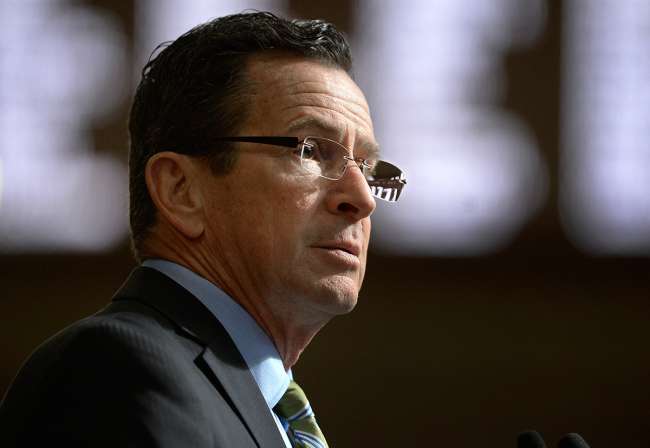Staff Reporter
Gov. Dannel Malloy Releases Revenue Plan for Connecticut

Connecticut Gov. Dannel Malloy released a revenue package Jan. 31 that is expected to stabilize the state’s Special Transportation Fund and restore previously canceled projects through various tax increases and a tolling system.
The administration’s plan contains four tenets: a 7-cent increase of the gas tax that gradually will be phased in over the next four years, a statewide electronic tolling system that will begin in fiscal year 2023, advanced diversion of a car sales tax into fiscal 2019 and a $3-per-tire fee on tire purchases.
The Special Transportation Fund finances Connecticut’s transportation system, including the operating costs of the state’s Department of Transportation and all the services it provides.
“Investment in transportation is investment in Connecticut’s economic future,” Malloy said Jan. 31. “But for decades, our state has chronically underfunded our roads, bridges, tunnels and rails, and as a result our infrastructure consistently ranks among the worst in the nation. Without new revenues this year, we face a transportation cliff. We will be forced to make draconian cutbacks, affecting even routine maintenance. If we want to revitalize our urban centers and attract the jobs of tomorrow, we absolutely must ensure the solvency of the Special Transportation Fund, and we must do it early in this legislative session. We can no longer afford to wait — it’s time for action.”
Malloy announced earlier this month that $4.3 billion in transportation projects were placed on hold until the General Assembly devoted more money to the transportation fund. The revenue streams identified in this new plan are meant to restore those projects and prevent drastic increases in rail and bus fares.
The projects include replacing the Hartford Interstate 84 viaduct, widening Interstate 95 from Bridgeport to Stamford and renovating the I-84 “Mixmaster” interchange in Waterbury, which runs southwest to northeast through Connecticut and intersects Hartford.
“The combination of immediate and long-term additional revenue provided by the governor’s recommendations represents a solution to maintaining our commitment to operate a safe highway, bus and rail transportation network and to avoid serious deterioration of our state and municipal transportation infrastructure,” CTDOT Commissioner James Redeker said. “The additional revenue in fiscal year 2019 will relieve bus and rail riders of the potential for massive impacts to fares and service. Overall, the implementation of a growing, predictable income stream to the fund will enable the effective planning and delivery of the quality transportation system that Connecticut’s economy depends on.”
The unveiling of this revenue plan came a day after President Donald Trump gave his State of the Union address. During his speech, Trump called on Congress to prepare a $1.5 trillion infrastructure bill that would be bolstered heavily by state partnerships with private-sector firms. Earlier reports pointed to an infrastructure plan that would rely on $200 billion from direct federal funds that could produce the $1.5 trillion mark over 10 years through private partnerships.
“Despite big promises of a massive infrastructure package, it has become clear that the Trump administration has no plans to make real investments in our transportation system,” Malloy added. “Other states have realized that they must take matters into their own hands, and we must do the same to ensure the viability of the Special Transportation Fund.”
Malloy, a Democrat, has stated that he will not run for reelection in 2018.

